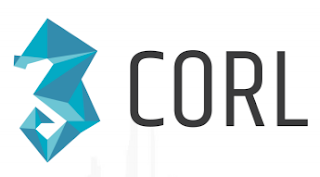SAFE HAVEN "The solution to digital inheritance"
HA TRUST ALLIANCE
Safe Haven's Trust Alliance
BE PART OF HISTORY...
Safe Haven’s Alliance Program is a group of legal entities which have been screened by Safe Haven in order to perform all the necessary steps to accomplish our goal, starting the future of trust by securing your assets and by doing that reassuring your relatives, stake holders and your legacy.
Our legal entity, registered at Safe Haven will need our token SHA to complete the registration on the blockchain. In that way SHA will increase in value.
If you are a legal entity willing to join our Alliance, please send an inquiry to info@safehaven.io and we will get in touch with you as soon as we work out our legal platform. We will be launching a dedicated trust alliance portal very soon in order to answer any legal questions. As soon as our portal is launched, legal entities will be able to subscribe (legal certification documents will need to be provided upon subscription). The users will be asked to pay an annual fee in order to obtain a subscription to our services.
Safe Haven's Trust Alliance
Whitepaper here: /SafeHaven_WhitePaper.pdf
Be whitelist and part of history: /safehaven.io/whitelist.php
note: Whitelist is open until 02/20/2018 12:00 PM CET
Token Allocation
- PRE-SALE: 2500 SHA/ETH TOTAL (5,000,000 SHA)
- 6% PRE-ICO SALE: 2000 SHA/ETH TOTAL (26,000,000 SHA)
- 31% ICO SALE: 1500 SHA/ETH TOTAL (20,000,000 SHA)
- 23% FOUNDERS: 15,000,000 SHA
- 18% COMPANY: 10,000,000 SHA (Locked for 12 months)
- 12% ADVISORS: 6,000,000 SHA
- 7% COMMUNITY & BOUNTY: 3,000,000 SHA 3
The blockchain is a software innovation for establishing digital trust between users
facilitating transactions of value, over a network. The blockchain enables trust to be
distributed throughout a network, without the need for a central intermediary to track,
verify and approve the digital exchange of value. The notion of authorizing trust from a
central intermediary currently underpins both private and government institutional
structures, however this is proving to be costly, slow, and also vulnerable to attack. The
blockchain overcomes these issues by operating as a decentralized distributed
database, maintaining a continuously growing list of records called blocks.
On-chain computer code or "Smart Contracts" are computer protocols that facilitate,
verify, and enforce the performance of a contract making a contractual clause
unnecessary. Smart contracts often emulate the logic of contractual clauses. Smart
contracts can exchange money, property, shares or anything of value in a transparent,
conflict-free way, while avoiding the services of a middleman. Ordinarily, a process
would require payment to a middleman, government agency, bank, lawyer or a notary,
and then a processing time before the receipt of goods or services. However, with
smart contract technology it can all be automated. Smart contract technology can be
compared to an automated vending machine. With a vending machine, money is
deposited into the machine and the desired item drops for collection, if the correct
amount is deposited. In comparison, with a smart contract, the money is deposited
into escrow on the blockchain for a receipt of a transfer of a token (e.g. a digital
certificate of title for a house), which is instantaneously transferred into a
counterparty’s control once the conditions are met. Smart contracts not only define
the terms and conditions around an agreement in the same way that a traditional
contract does, but it also provides enforcement of those obligations.
Token
The SHA-token is an ERC20 token built on top of Ethereum. ERC20 standard was
introduced on the Ethereum blockchain in order to allow developers to design
decentralized apps (Dapps) to work with tokens out of the box without the need to
reinvent the wheel every time a new token system is introduced. Therefore, with
ERC20, anyone with an idea can deploy a product on the blockchain without having to
undergo the whole process of designing the platform. With ERC20, we are able to
define a common set of rules for the Ethereum-based SHA to adhere to. We can know
in advance how the token will behave based on the standard. The SHA token is
developed to heal the broken market we described in this whitepaper. The first phase
of development concerns the amount of tokens we are creating. The SHA token will be
used as a fuel in the process.
There funds allocation will be:
- Development 40%
- Marketing 10%
- Salary Plans 18%
- Legal Expenses 15%
- Operational Expenses 17%
They aim to allocate a large share of funds raised to facilitate of development of the
platform. Therefore, 40% of the funds will go towards this initiative. 10% of the funds
will be allocated to facilitate various marketing activities, including bounty campaigns
and signature campaigns. 15% will be allocated to legal markets like exchanges. 17%
from the funds are for Operational Expenses and 18% will be allocated to Salary Plans.
BE PART OF HISTORY
Safe Haven's Trust Alliance
Bitcointalk Profile created: https://bitcointalk.org/index.php?action=profile;u=1502578;sa=summary





Find interesting articles on CryptoDetail is a learning centre for cryptocurrency investors. We have the guides, tutorials, how-to materials which could be useful for newcomers and professionals.
ReplyDelete